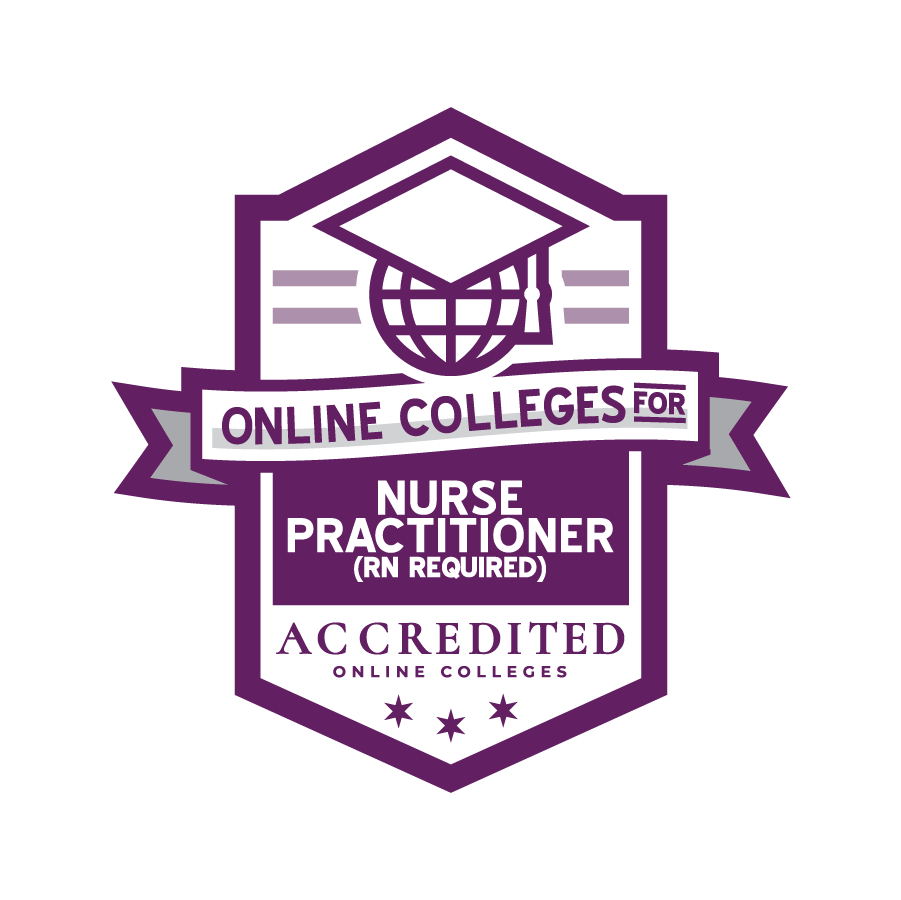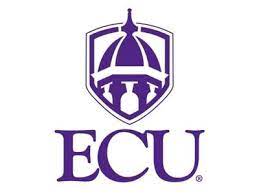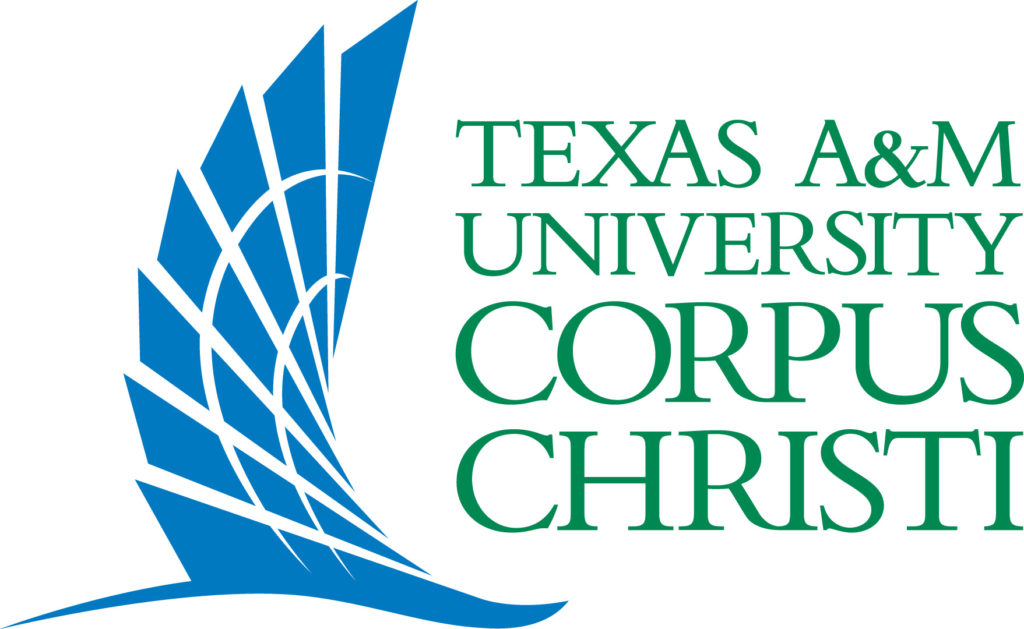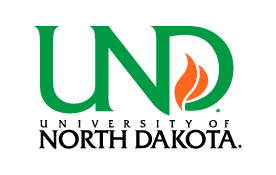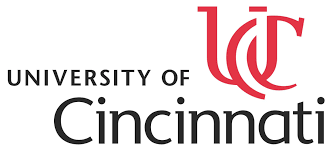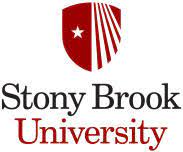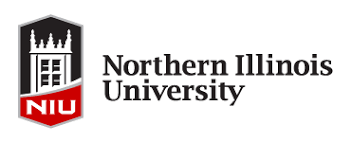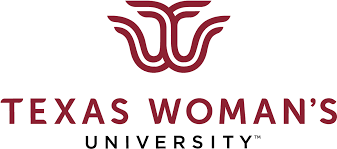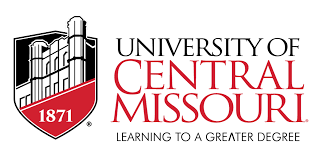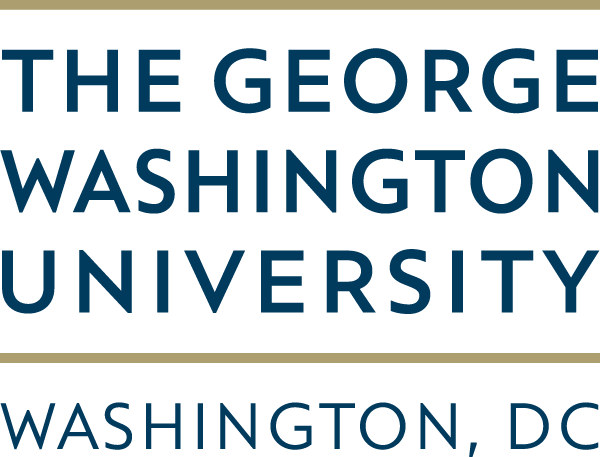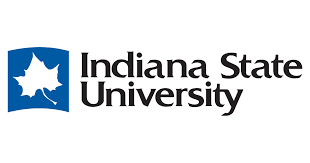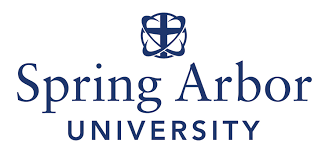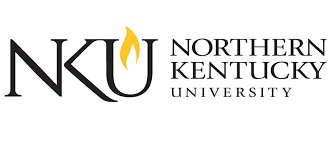Registered nurses earn much more than the U.S. national average, making it a potentially lucrative career choice. However, nurse practitioners (NPs) and other advanced practice nurses can earn even more.
While money isn’t everything, it’s a significant factor when choosing your career path. If you’re already a registered nurse, you understand that this field is rife with job opportunities, some of which pay extraordinarily well. Becoming a nurse practitioner is one such specialty.
Featured Programs
However, becoming a nurse practitioner takes hard work, dedication, and time – a precious commodity many nurses don’t have! That’s why pursuing an online nurse practitioner degree makes so much sense. By studying online, you can complete your course requirements around your busy work schedule with a much greater degree of flexibility than if you take traditional on-campus classes.
The scope of specialties for nurse practitioners is quite wide. You can specialize in many areas, including adult-gerontology, psychiatrist care, and neonatal. What’s more, your role within each specialty can vary widely, meaning there’s a good chance of finding a role that fits your work style perfectly.
Couple this with the fact that the Bureau of Labor Statistics (BLS) predicts a 40% rise in employment for advanced practice nurses over the next decade, and you’ve got some great reasons to get into nursing!
See Also: 30 Top Nationally Accredited Online Colleges For Nursing
What Do You Learn in a Nurse Practitioner Program?
The specifics of your NP program depend on your specialty. For example, if you choose a program specializing in neonatal care, you’ll have much different coursework than a college in a psychiatric nurse practitioner program.
Having said that, all NP degrees require you to complete core courses in fields like physiology, clinical research, and clinical practice. You might take courses like:
- Theory for the Practice of Advanced Nursing
- Research for the Practice of Advanced Nursing
- Healthcare Finance & Economics
- Health Assessment for Advanced Nursing
- Human Physiology and Pathophysiology for Advanced Practice Nursing
Other coursework focuses on developing advanced skills and knowledge pertaining to diagnosing, managing, and treating patients. Furthermore, some NP programs explore pharmacology and provide training for prescribing medications to patients.
Additionally, no matter your NP specialty, your program of study will involve multiple field experiences, such as practica or internships. The type of field experience and the number of hours you must complete in a clinical setting vary from one program to the next, though.
How Many Years of College to Become a Nurse Practitioner?
The number of years it takes you to become a nurse practitioner depends on many factors, not the least of which is your current education.
For example, if you’re just beginning college, you’ll need around four years to finish your Associate Degree in Nursing (ADN) and Bachelor of Science in Nursing (BSN) degree. You’ll need another two years or so to complete a Master of Nursing Science (MSN degree). So, in six years, you might be able to complete an NP program.
However, many NPs complete a doctoral degree. If you choose to pursue a Doctor of Nursing Practice (DNP), you’ll need around four more years to finish that program, bringing the total to around ten years of schooling.
The education requirements of many DNP programs do not stipulate that you need a master’s degree. If you skip getting a master’s degree, you can complete your NP training in about eight years and begin your nursing career.
Bear in mind that nursing certification boards require continuing education. You’ll need to stay abreast of recent developments in care, current research, and nursing practices to keep your nursing license in good standing.
See Also: 30 Accredited Online Colleges in Public Health
What Specialties Can You Pursue as a Nurse Practitioner?
As noted earlier, the scope of nursing is quite large. Nurses work in all sorts of settings, from emergency rooms to doctor’s offices to schools. As a nurse practitioner, you can pursue a broad range of specialties with a specific patient population as well.
For example, some nurse practitioners become nurse midwives who specialize in treating pregnant patients and assisting with childbirth. Other NPs focus on becoming nurse anesthetists, and specialize in managing anesthesia for patients before, during, and after a medical procedure.
As an NP, you can work with pediatric or geriatric patients, families, or psychiatric patients. There’s also a neonatal nurse practitioner (NNP) specialty in which you train to work specifically with children under the age of two who were born prematurely or with a health condition (e.g., a birth defect or an infection).
In each case, you’ll need advanced education to specialize. As discussed earlier, you’ll likely need to earn a DNP in your area of expertise.
What are the Best Online Schools for Nurse Practitioner (NP)?
Accredited Online College uses the most recent data from the Department of Education’s National Center for Education Statistics to rank the accredited NP programs you find below.
Each program has an individual score. That score is compared to all other universities offering that degree to determine the final score you see by each ranking. Accredited Online College considers several criteria to determine these rankings:
- Affordability
- Student-to-faculty ratio
- The number of programs offered on-campus and online.
To learn more, visit our methodology page. With that, let’s explore some of the best nurse practitioner programs online!
#1. East Carolina University
ECU’s College of Nursing offers a Master of Science in Nursing degree program. Admission to the program requires a bachelor’s degree in nursing with a minimum GPA of 2.7 from your undergraduate studies and 3.0 in your nursing major. You’ll also need to possess an unrestricted RN license in North Carolina.
By enrolling in this program, you can specialize in one of many concentration subject areas. These include:
- Clinical Nurse Specialist: Adult-Gerontology
- Clinical Nurse Specialist: Neonatal
- Neonatal Nurse Practitioner
- Nurse-Midwifery
- Psychiatric-Mental Health Nurse Practitioner
If you are interested in a nursing role that doesn’t involve direct patient contact, you could choose to specialize in Nursing Education or Health Systems Leadership. Some of ECU’s MSN specialties require on-campus components and online learning.
Distance education at ECU costs around $289.61 per credit hour for in-state students, which includes a technology fee. A $125.00 per credit fee is associated with all MSN coursework as well. Out-of-state students must pay a base rate of $1,020.11 per credit as well as the $125.00 per credit MSN fee.
#2. Texas A&M University Corpus Christi
As a distance learner at Texas A&M University Corpus Christi, you can pursue an MSN degree with a Family Nurse Practitioner specialization. The program consists of 49 hours that prepare you to become an Advanced Practice Registered Nurse (APRN). Completing this program also qualifies you to sit for the National Certification Exam to become a Family Nurse Practitioner.
The curriculum includes some graduate-level courses in the following areas:
- research methods in advanced nursing practice
- health policy
- science in nursing
- diversity
- role development
The remainder of your program involves studying advanced nursing topics, including managing acute and chronic illnesses, wellness and health promotion, and advanced physiology. Other advanced topics include health assessment and diagnosis.
Texas A&M has ‘Distance Education Differential Tuition,’ an extra charge for online programs. This can range from $40 up to $550 per semester credit hour and is in addition to the typical tuition rates. For the most accurate estimate of your costs, check out the tuition and fees or use the tuition calculator.
#3. University of North Dakota
The University of North Dakota offers two master’s programs for nurses: the M.S. Family Nurse Practitioner program and the Psychiatric-Mental Health Nurse Practitioner master’s degree. Coursework can be completed entirely online, and you might even graduate in as few as eight semesters.
Both programs offer the flexibility of online learning as well as three potential start dates throughout the year. No GRE or GMAT is required, either.
You’ll complete clinical placements throughout the program, gaining valuable hands-on experience. The university provides you with assistance in sourcing a suitable clinical placement. Additionally, you’ll take courses like:
- Theories and Concepts in Nursing
- Advanced Pathophysiology
- Advanced Health Assessment
- Advanced Pharmacology
- Ethical, Legal, and Health Policy Issues
At the end of the program, you’ll be qualified to sit for the F.N.P Certification Exam.
You’ll pay $848.12 per credit regardless of your residency. However, UND offers various military and military family discounts. Check out UND’s tuition calculator for more information on tuition rates.
#4. University of Cincinnati
The University of Cincinnati Online offers a 51-credit MSN Family Nurse Practitioner distance learning degree that focuses on clinical expertise and diagnosis of health conditions. This program also prepares you to assess and manage complex illnesses across all age groups.
This fully online program offers flexibility for working professionals and part-time students. It was specifically designed for students with a BSN and an RN, so the coursework provides advanced opportunities to expand your knowledge and skill set. Courses include:
- Advanced Health Assessment
- Research and Best Evidence for Clinical Reasoning
- Pharmacology for Advanced Practice Nurses
- Clinical Management of Adult Health Problems for the Advance Practice Nurse
- Healthcare Policy for the Advanced Practice Nurse
If you’re looking for high-quality teaching and support, you’ll be in good hands at this institution, according to U.S. News & World Report. Cincinnati’s online graduate nursing programs routinely rank highly among the best online programs in the nation. The program’s faculty also comprises experts who are practicing nurses with recent clinical experience.
At the University of Cincinnati, you’ll benefit from the ‘Cincinnati Tuition Guarantee.’ This program sets tuition and fees at a consistent rate for the length of your program. To work out your cost of attendance and tuition, check out this page on the university’s website.
#5. Stony Brook University
The Master of Science Family Nurse Practitioner program from Stony Brook University is a distance education degree that’s completed mostly online. However, there are some campus-based requirements.
For admission, you’ll need a B.S. degree in nursing and a cumulative GPA of at least 3.0, in addition to current licensure as an RN. You’ll also have an advantage if you have at least one year of recent, relevant experience.
If accepted, you’ll complete a total of 45 credit hours, with core requirements in organizational leadership, quality improvement, and health care policy and advocacy. You’ll also study:
- research methods
- pharmacology
- health assessment
- pathophysiology
- interventions
This program also requires clinical practice components to prepare you for working with patients of all ages.
As a successful graduate of this program, you may sit for the American Nurses Credentialing Center (ANCC) and American Association of Nurse Practitioners (AANP) national certification exams.
While some universities have a fixed tuition rate for distance learning, Stony Brook charges higher tuition for non-residents. You’ll pay around $471.00 per credit as a New York Resident, but as a non-resident, tuition is $963.00 per credit. A breakdown of tuition and fees for graduate studies can be found here.
#6. Ohio State University
Ohio State Online offers a Master of Science in Nursing that prepares you for clinical work in a wide scope of settings, including clinics, hospitals, and private practice.
If you’re interested in this program, you must have a BSN degree from an institution accredited by ACEN, CCNE, or CNEA to apply. However, assuming you meet the eligibility requirements, you’ll be glad to hear that this program has been ranked within the top three by U.S. News & World Report for best online graduate nursing programs in the nation.
Once enrolled, you have a choice of three different tracks, including:
- Family Nurse Practitioner
- Neonatal Nurse Practitioner
- Psychiatric Mental Health Nurse Practitioner
The first two tracks allow you to specialize in diagnosing and managing illnesses in individuals and families or neonates, respectively. The third option offers greater specialization in mental health treatment.
Some of the core coursework you can expect to take includes Quality Improvement and Informatics, Innovation Leadership in Advanced Nursing Practice, and Advanced Health Assessment, to name a few.
Ohio State Online’s tuition is $972.50 per credit for a per-semester cost of $10,545.90. Out-of-state students must pay a $200 per-semester fee on top of the base tuition rate. This brings the out-of-state tuition to $10,745.90 per semester. You can use the calculator on the university’s website to get a more accurate estimation of the program’s costs.
#7. University of Colorado – Denver/Anschutz Medical Campus
Like many accredited online FNP programs, this program from the University of Colorado combines academic knowledge with clinical placements to deliver a well-rounded education.
Upon graduation, you can work in areas including primary care, urgent care, and school clinics, to name a few. You’ll complete coursework online, though there are some on-campus intensives required. The combination of rigorous coursework and in-person intensives means this program has an outstanding first-time pass rate for FNP national certification examinations.
Typically completed in less than 2.5 years as a full-time student or around four years with part-time study, the program is best suited for you if you have some degree of flexibility. This is owing to the mandatory campus visits and 14 credits of clinical experience. Clinical placements are provided for you in the Denver metropolitan area, making meeting these mandatory hours easier.
In addition to clinical work, you’ll take part in a curriculum that includes courses like:
- Advanced Pathophysiology
- Theory Foundations for Advanced Nursing
- FNP Care of the Pediatric Patient
- FNP Advanced Clinical Skills, Diagnostic Reasoning, and Clinical Decision Making
- FNP Diagnosis and Management of 3 Summer Physiologic and Psychiatric Health
Online tuition at the University of Colorado is $740 per credit for master’s-level courses in nursing for Colorado residents. Non-resident students pay $1,200 per credit for graduate nursing classes.
#8. Northern Illinois University
Offered by the NIU School of Nursing, this program benefits from an academic school that was named the best nursing school for men in nursing in recent years. It has also been ranked within the top ten percent in the nation by best-nursing-colleges.com.
In this program, coursework is delivered entirely online with no on-campus meetings. However, clinical must be done in person.
You can choose from two curriculum specializations: Nursing Education and Family Nurse Practitioner. You’ll complete either 41 or 50 credit hours, depending on your choice. Either way, you must have a bachelor’s degree in nursing and existing RN licensure in the state of Illinois to be considered for admission.
While the Nursing Education track prepares you for academic work, the Family Nurse Practitioner sets you up for being a practicing advanced nurse practitioner. The FNP program includes studies in a wide range of areas, like:
- Primary Care: Infant, Child, and Adolescent
- Primary Care: Adult
- Primary Care: Women during Reproduction
- Advanced Pathophysiology across the Lifespan
- Advanced Pharmacology across the Lifespan
Several internship experiences are also required, each with a different focus area. These include:
- Infants, children, and Adolescents
- Adults
- Women
Tuition rates vary between these specializations, with the FNP program costing more. Tuition per credit for the nursing education curriculum is around $505.00 per credit, while the tuition rate for the FNP program is around $745.00 per credit. You can find more information on tuition and fees on NIU’s online tuition page.
#9. Texas Woman’s University
The Master of Science in Nursing – Family Nurse Practitioner degree at TWU has been ranked the No.1 Online FNP Master’s Program in Texas. This is in addition to the institution being named one of the best graduate schools for nursing by U.S. News & World Report.
This program has three intakes per year, with accepted students completing 13-week courses and a total of 45 credit hours. While this is a fully online program with online coursework, around half of the curriculum’s courses require clinical hours, so you should be prepared to allow for some flexibility in your studies.
Speaking of studies, you’ll take courses like:
- Theoretical Foundations and the Advanced Nursing Role
- Evidence-based Practice for the Promotion of Quality Outcomes
- Health Policy and Health Care Delivery for Advanced Nursing Practice
- Foundational Concepts for the Family Nurse Practitioner
To be considered for admission, you must have a BSN from an accredited institution and have a current unencumbered RN license. Other eligibility requirements apply as well.
At TWU, resident and non-resident students alike pay $572.40 per credit hour. This is inclusive of fees. However, this figure does not include expenses related to traveling to campus for clinicals. More information about this program’s costs and financial aid opportunities can be found here.
#10. University of Alabama at Birmingham
UAB’s MSN Nurse Practitioner Pathway prepares you for a variety of roles with a broad selection of nine different specialties, including:
- Family Nurse Practitioner
- Adult-Gerontology Primary Care Nurse Practitioner
- Adult-Gerontology Acute Care Nurse Practitioner
- Adult-Gerontology Acute Care Nurse Practitioner with Registered Nurse First Assist
- Psychiatric/Mental Health Nurse Practitioner
- Pediatric Primary Care Nurse Practitioner
- Pediatric Primary Acute Nurse Practitioner
- Neonatal Nurse Practitioner
- Women’s Health Care Nurse Practitioner
Coursework is offered via distance learning. However, the program requires some campus-based learning for intensives. You are expected to complete four of these intensives within the final four semesters of the degree plan.
The courses you take will be largely specific to the area of specialization you choose. However, some of the common courses between the specialties listed above include:
- Interprofessional Leadership and Role Development for Practice Excellence
- Advanced Pathophysiology
- Population Health in Advanced Practice Nursing
- Evidence-Based Practice Design and Translation
- Assessment and Diagnostic Reasoning for Advanced Nursing Practice
To apply, you must have a BSN degree from a regionally accredited university and an unrestricted RN license in the state where clinical experience will be gained.
Tuition for this program costs around $682.00 per credit hour, regardless of whether you are a state resident. You’ll also pay an educational support and technology fee of around $235 per course. Books and supplies cost approximately $600 per term. For more information on costs, check out the program page.
#11. University of Connecticut
The University of Connecticut offers a master’s degree for neonatal nurse practitioners (NNP) that requires the completion of 44 credits. You can complete the program on a full-time or part-time basis, and most requirements can be done online. Two on-campus simulation experiences are necessary, though.
You’ll take a variety of courses as part of your studies. This includes:
- Advanced Embryology and Neonatal Physiology
- Advanced Neonatal Nursing Theory
- Statistical Methods in Nursing
- Nursing Science and Patterns of Knowing
- Advanced Pathophysiology across the Lifespan
Preparing for a complex role like an NNP requires a significant time investment. But successful completion of the program allows you to apply for the Neonatal Nurse Practitioner examination and prepares you for a highly rewarding career.
Admission requirements for this program are a little stricter than most. In addition to having a bachelor’s degree in nursing and being a licensed RN, you need to have at least two years of work experience as a full-time RN in a level-three neonatal intensive care unit. This experience must be completed before starting your clinical practicum courses.
Tuition for this program is $995.00 per credit hour ($2,775.00 for a 3-credit course). The same tuition rate applies to all prospective students regardless of residency or international status. With this being a particularly expensive specialization, you may wish to check out the scholarship page on the university’s website.
#12. Ball State University
With Ball State’s master’s degree in nursing, all courses are offered online via asynchronous learning. This means you can set your schedule to work around your existing commitments. You’ll also have access to a range of student services, an online orientation, and an orientation specific to your program.
You’ll have a choice from three specializations:
- Nurse Educator
- Nurse Administrator
- Family Nurse Practitioner
The first two specializations comprise 36 credit hours, while the FNP option comprises 47. This option also includes a much greater commitment regarding supervised clinical hours in primary care settings. For example, you must complete 60 clinical hours of advanced health assessment, 240 clinical hours of primary care for adults, and 120 clinical hours of primary care for children.
A further 90 clinical hours are necessary for women’s primary care, and 180 clinical hours of family nurse practitioner practice are required. Check out the program page for more details on these three specializations.
Indiana residents pay a tuition rate of $326.00 per credit. A $110.00 technology fee and a $25.00 online learning fee are also required each semester. For non-residents, the cost per credit is around $544.00 per credit hour.
#13. The University of Texas at El Paso
This Master of Science in Nursing allows specialization in one of three majors:
- Nursing Administration and Management (NAM)
- Nursing Education (NE)
- Nurse Practitioner (NP)
What’s more, some of the specializations have further concentrations to choose from. It’s worth checking out the program page to read more about each of the tracks you can follow as an enrolled student.
These options are suitable for you if you want to secure a nurse leadership role, teach in an academic or clinical environment, or pursue patient-contact roles as a nurse practitioner. If you pursue the NP option, you will be eligible to sit for national certification upon completion of the program.
Courses last for seven weeks and are taught online, though some practicum and mentored courses can require visits to the campus. Your studies are guided by a curriculum that’s aligned with the latest national standards for nursing.
Tuition and fees vary depending on your program. For the specialization in nursing education or nursing administration management, you’ll pay around $500.00 per semester credit hour as a state resident or around $620.00 as a non-resident. The nurse practitioner specialization costs $552.00 for in-state students and $782.00 for out-of-state students.
#14. Simmons University
This RN to MSN Family Nurse Practitioner degree program is unique in that you do not need a BSN to be eligible. If you’re a licensed RN and have earned a bachelor’s degree in nursing, then you can apply.
You’ll complete a minimum of 48 course credits in addition to at least 672 clinical placement hours. The program can be completed in as few as six 14-week terms if you study full-time. Coursework is online, while placements are not; however, the dedicated placement team will help you to find a suitable placement.
No matter if you study full-time or part-time, you’ll get a quality education – this program is accredited by the Commission on Collegiate Nursing Education.
The curriculum includes coursework in the following:
- Physical Assessment
- Pharmacology
- Pathophysiology
- Clinical Research
- Clinical Practice
The clinical component requires you to conduct a head-to-toe examination of a patient. You’ll also learn how to prescribe medications, diagnose acute and chronic illnesses, and how to develop treatment plans for your patients.
Tuition is $1,235.00 per credit hour. The university also offers scholarship opportunities for qualified and eligible students.
#15. Columbus State University
This master’s degree in nursing is offered in conjunction with Georgia Southwestern University, with both institutions belonging to the University System of Georgia.
This program is 44 credits and prepares you to be a family nurse practitioner. Coursework is asynchronous and done entirely online for maximum flexibility. You must complete 765 clinical hours at an approved site in your area, too. If you study full-time, you can complete these requirements in five semesters.
Some of the courses you’ll take include:
- Pharmacology for the Advanced Practice Nurse
- Health Assessment for Advanced Practice Nurses
- Health Care Delivery Models, Economics, and Policy
- Health Promotion of Adults
- Health Promotion of the Elderly
To apply, you need a bachelor’s degree in nursing from a regionally-accredited university and a nationally-accredited nursing program (NLNAC or CCNE). You must also have a minimum GPA of 3.0. In addition, you should have unrestricted RN licensure in the state where you’ll complete your clinical requirements. You must also submit three professional references and a resume or curriculum vitae.
State residents pay around $210.00 per credit hour in tuition plus $690.00 in fees per credit. Non-residents pay the same fees but $817.00 in tuition per credit. To understand what makes up the bulk of these fees, consult the tuition and fees page on the university’s website.
#16. University of Southern Indiana
This family nurse practitioner master’s degree is 42 credit hours. You’ll also complete a minimum of 665 clinical hours. This split includes 18 credit hours of core courses covering graduate-level topics such as:
- Population-Based Care and Health Policy
- Nursing Leadership in Health Systems
- Healthcare Informatics for Advanced Nursing Practice
- Roles for Advanced Nursing Practice
- Theoretical Foundations for Advanced Nursing Practice
Nine credits of clinical courses are also required. These include Advanced Concepts of Pathophysiology, Advanced Health Assessment, and Clinical Pharmacology for Advanced Nursing Practice. Fifteen credits of specific preparation as a family nurse practitioner are required as well.
When you enroll in this program, you’re encouraged to find a preceptor who will guide you in clinical placements. They’ll help you arrange placements, put contracts in place, and establish your plan to meet your clinical requirements. More information can be found in the student handbook for clinical experience.
In-state graduate tuition is $419.06 per credit hour. The same rate is levied for online students who reside outside Indiana. More information on financial aid and costs, including a billing and payment schedule, can be found on the university’s tuition and fees page.
#17. University of Southern California
This Master of Science in Nursing is a part-time or full-time program geared toward students with a bachelor’s degree and at least one year’s experience as an RN.
The program can be completed in as few as 21 months if you study full-time. Part-time study lengthens the program to approximately 33 months. In either case, you’ll gain an in-depth understanding of how biomedical, psychological, and sociocultural influences impact healthcare.
The curriculum for this program is interdisciplinary. You’ll explore topics that include:
- Quantitative and Qualitative Data Analysis and Research Methods
- Community-Based Research
- Health Care Technology and Innovation
- Health Care Policy
- Health Care Management
Aside from the requirements above, admission to the program may include completing a two-unit bridge course to increase your understanding of pathophysiology and pharmacology. This applies to you if you have a cumulative grade of C+ or lower in your undergraduate science courses: microbiology, chemistry, or anatomy and physiology. Other conditions can be found here.
The easiest way to calculate your approximate cost of attendance is to check out the tuition and fees page on the university’s website. Typically, a graduate student at USC will pay around $33,320.00 in tuition per semester. This varies from program to program and excludes the fees that may apply.
#18. Maryville University
Maryville University offers various online options in nursing, including a bachelor’s degree, master’s degree, and doctoral-level study. These include an MSN-FNP, BSN-DNP, and a post-masters FNP certificate. A Doctor of Nursing Practice, Nurse Practitioner, Family Nurse Practitioner Concentration (DNP-NP FNPC) is also available.
Not only is this program fully online, but no campus visits are required. Moreover, no GMAT, GRE, or statistics scores are required for this nursing program. While your coursework is online, in-person clinical experiences are required. The university will assist you in finding local clinics to satisfy the clinical requirements, saving you time commuting to campus.
Coursework for the FNP track includes the following classes:
- Adult-Gerontology Health Care
- Pediatric/Family Health Care
- Family Nurse Practitioner Practicum
- Adult-Gerontology Nurse Practitioner Practicum
According to Forbes, Maryville is one of ‘America’s Top Colleges.’ The school has also ranked on Kiplinger’s list of ‘Best College Values.” You can learn more about these and other accolades on the program page.
Tuition for the nursing programs at this university varies. The RN to BSN program costs $525.00 per credit, while the BSN to DNP program costs $838.00 per credit at the master’s level or $922.00 per credit for doctoral courses. The MSN-FNP option is $838.00 per credit. With 41-50 credits required, the FNP track will cost between $34,358.00 and $41,900.00, not including fees.
#19. Delta State University
Admission to this master’s degree in nursing is competitive, and there are two types of admission. For full admission, you’ll need a minimum GPA of 3.0 in a bachelor’s degree program in nursing. Likewise, you must have one or more years of continuous clinical nursing experience as an RN. Various other requirements apply. Admission with conditions can be considered if you fall short of the standard admissions criteria.
Classes are online to provide maximum flexibility to complete your studies. You’ll also be able to participate in regular online discussions and debates with your cohort.
However, there are scheduled campus visits to attend course seminars. It’s also possible to arrange clinical opportunities close to home to reduce or eliminate the need to commute to Cleveland, Mississippi, where Delta State University is located. Bear in mind that clinical experiences must take place in Mississippi or Arkansas.
Tuition is $4,217.50 per semester for 9-12 credits. Courses are $469.00 per credit if you take fewer than nine credits at a time. These tuition rates are the same for resident and non-resident students. Information on standard tuition and fees can be found on Delta State’s tuition and fees page.
#20. Angelo State University
This Master of Science in Nursing (M.S.N.) – Family Nurse Practitioner degree is accredited by the Commission on Collegiate Nursing Education. The faculty includes healthcare industry experts with many years of experience practicing the subjects they teach.
As a student in this program, you can join various organizations that put you in contact with your fellow nursing students. Additionally, these organizations enable you to network with healthcare professionals.
Your graduate nursing courses prepare you for advanced nursing practice. These courses include:
- Informatics and Health Care Technology for Advanced Nursing
- Pharmacotherapeutics
- Research Foundations for Advanced Nursing
- Advanced Pathophysiology
A full graduate-level nursing degree plan is available here.
The admissions requirements for this program stipulate that you have a bachelor’s degree in nursing from a program accredited by the Accreditation Commission for Education in Nursing (ACEN) or the Commission of Collegiate Nursing Education (CCNE). You must also have a 3.0 GPA or higher and one year of recent clinical experience. Other requirements also apply.
Your tuition at Angelo State University differs based on state residency. In-state tuition and fees as a Texas resident taking nine credit hours or more per semester are $7,247.00 per year. If you’re a non-resident, you’ll pay around $590.00. You can use the tuition calculator for more detailed information.
#21. University of South Carolina-Columbia
The University of South Carolina, Columbia (UofSC) offers a master’s program in nursing that prepares you to be an Adult-Gerontology Acute Care Nurse Practitioner (AGACNP). As part of the program, you will learn to work directly with adults with complex care requirements.
This 46-credit program requires eight semesters of coursework. This includes studies on:
- Theoretical and Conceptual Foundation for Nursing
- Advanced Pathophysiology for Nurses
- Pharmacological Management of Pediatric, Adult, and Gerontological Patients Across the Lifespan
- Diagnostic Interpretation and Therapeutic Modalities
- Management of Acute Care Adult and Gerontological Health Problems
The program also requires that you complete 672 hours of clinical work. Clinicals are held during the final three semesters of the program. Some clinical work must be performed on campus in Columbia.
Admission into this program requires a B.S. in Nursing from a nationally accredited program. You must have a minimum GPA of 3.0 on a 4.0 scale for your undergraduate work. Within the past two years, you must also have at least one year of full-time nursing experience (2,400 hours).
The cost of your master’s degree varies based on multiple factors, including your residency and whether or not you receive a scholarship. For example, if you’re an in-state graduate student, you’ll pay a base rate of $6,867.00 per semester. If you’re an out-of-state student, you will pay $14,880.00 per semester. For a full breakdown of the potential costs associated with the various nursing degree options, visit the tuition and fees page on the university’s website.
#22. Georgia Southwestern State University
In recent years, Georgia Southwestern State University’s (GSW) nursing school has ranked as the best in the state. Likewise, GSW’s RN to BSN program has been on the list of Georgia’s best online RN to BSN programs. In addition to the bachelor’s program, GSW offers an online master’s degree in nursing with a specialty in Family Nurse Practitionership. Graduates of this program have a 100 percent pass rate on the FNP certification exam.
This 44-credit Master of Science program can be completed in as little as 22 months if you study full-time. Part of your studies include courses like:
- Advanced Health Assessment
- Diagnostic and Clinical Reasoning for APNs
- Research for Evidence-Based Practice
- Advanced Pathophysiology
- Advanced Pharmacology
This program also requires you to complete 765 clinical hours. While coursework is completed entirely online, clinical hours must occur at a program-approved site with an approved preceptor. However, GSW will work with you to ensure your clinical site is as close to your residence as possible.
You must already have a BSN degree and an unencumbered RN license to apply. You must also provide proof of immunizations, a resume, and three recommendation forms.
As a Georgia resident, you’ll pay $257.00 per credit hour for your online graduate studies. As an out-of-state resident, you’ll pay the same $257.00 per credit rate.
#23. University of Texas at Arlington
The University of Texas at Arlington offers several distance learning pathways to get your master’s degree in nursing. They include:
- Nursing Administration
- Nursing Education
- Family Nurse Practitioner
- Pediatric Primary Care Nurse Practitioner
- Pediatric Acute Care Nurse Practitioner
- Adult-Gerontology Primary Care Nurse Practitioner
- Adult-Gerontology Acute Care Nurse Practitioner
All of these programs include fully online coursework. Though the curricula vary from one specialty to the next, you can expect to take common core courses regardless of your specialty, including:
- Pharmacology
- Pathophysiology
- Evidence-Based Practice
- Theories of Nursing
These programs vary in length from 36 to 46 credits. The time it takes to complete the program varies from as little as 19 months to as much as three years, depending on the specialty. More details about each program are available on the UTA nursing program website.
Tuition for the above master’s degree programs varies depending on your choice of specialization. For example, the total tuition costs for the M.S. Family Nurse Practitioner program are around $30,084. In contrast, the M.S. Adult-Gerontology Acute Care Nurse Practitioner tuition is approximately $26,814 for the entire program. Check out the nursing program page for a cost breakdown for each degree program.
#24. The University of Texas Medical Branch
There are four different tracks within the Nurse Practitioner program at the UTMB School of Nursing. You can specialize in adult-gerontology, either as an acute care nurse or primary care nurse, or pursue studies as a family nurse practitioner or neonatal nurse practitioner.
No matter which specialty you choose, you’ll complete core coursework, specialized classes in your chosen concentration area, and clinical hours that include client contact time in a local healthcare setting.
Other opportunities outside of these tracks are also available. If you’re interested in teaching or leadership, then you could pursue one of the alternative tracks, which include:
- Clinical Nurse Leader
- Executive Nurse Leader
- Nurse Educator
UTMB’s MSN program page has detailed information for all seven options.
UTMB’s MSN program page has detailed information for all seven options.
As an in-state graduate student in nursing at UTMB, you can expect to pay around $352.93 per credit hour in tuition (this includes resident tuition, designated tuition, and differential tuition). As a non-resident, you’ll pay a higher rate of around $769.80 per credit. Tuition does not include any course or lab fees that may apply, which are common with nursing programs. The School of Nursing graduate tuition and fee page has more details.
#25. University of Central Missouri
You can tailor your studies to your career goals by choosing one of two tracks from the University of Central Missouri. The Nurse Educator and Family Nurse Practitioner options require 33 and 44 credit hours to graduate, respectively.
The program curricula include core courses that cover essential topics like research methods in nursing, theories in nursing, and health policy. Additionally, you might take classes on:
- Family/Population Health
- Organizational Leadership in Complex Health Systems
- Advocacy
- Statistics
For admission, you must have a bachelor’s degree with an upper-division nursing major from a program accredited by the Commission on Collegiate Nursing Education or the National League for Nursing. You will also need at least one year’s experience as an RN if you want to pursue the FNP track and have an unrestricted license to practice as an RN.
The University of Central Missouri is one of the most affordable universities in the country. Their average tuition rate is around $9,414.00 for an in-state undergraduate student. You’ll pay about $445.50 per credit for online or hybrid courses at the graduate level, making this one of the cheapest online FNP programs. More information and a cost calculator can be found on UCM’s tuition and fees page.
#26. George Mason University
The Master of Science in Nursing: Family Nurse Practitioner program from George Mason University requires the completion of 49 credits. The program is accredited by the Commission on Collegiate Nursing Education and is open to applications from prospective students with a bachelor’s degree and an unencumbered RN license. The program has been ranked within the top 50 master’s programs in nursing in the nation.
You’ll study with faculty who are active practitioners. You’ll gain insight into FNP practice thanks to their expertise in real-world situations. Likewise, you’ll develop your own expertise by taking classes that prepare you for certification from the American Academy of Nurse Practitioners (AANP) or the American Nurses Credentialing Center (ANCC). These classes include:
- Theoretical and Ethical Foundations Related to Nursing
- Nursing Research and Biostatistics
- Organization of Nursing and Health Care Delivery Systems
- Nursing Informatics Inquiry
- Decision Making and Pharmacologic Management in Practice
In addition to your coursework, you’ll complete more than 500 hours worth of clinical experience. These clinical experiences are guided by a preceptor and occur at an approved location in or near your hometown.
Tuition at George Mason University depends on your level of study and the academic college in which you study. Additionally, distance learners pay a different rate. In this program, you’ll study within the College of Health and Human Services. Tuition for this master’s degree program is $850.00 per credit hour, regardless of your state residency.
#27. The George Washington University
The George Washington University’s online MSN: Family Nurse Practitioner program ranks seventh on U.S. News and World Report’s list of the best online FNP master’s programs in the nation. George Washington’s graduate FNP nursing program also ranks highly at 10th in the nation.
There are two admission dates for the program – one in spring and the other in fall. You can also choose whether to enroll in the program as a part-time or full-time student.
Once enrolled in this master’s degree in nursing (FNP), you will complete most coursework via distance education. Your courses include:
- Health Policy, Quality, and Political Process
- Advanced Physiology and Pathophysiology
- Advanced Health Assessment and Diagnostic Reasoning
- Genetics for Health Care Providers
- Advanced Pharmacology for Nursing
Two on-campus components are required for this program: a Campus Learning and Skills Intensive (CLASI) and an Objective Structured Clinical Examinations (OSCEs). Additionally, you must complete at least 600 hours of clinical experience. Clinical placements are arranged within your local community to allow you to meet your required clinical hours.
As a School of Nursing student, you’ll pay graduate tuition of $1,450.00 per credit hour. Various fees apply, including a $250.00 simulation lab fee, a $250.00 graduate clinical fee, and a $200.00 healthcare quality materials fee.
#28. Indiana State University
Indiana State University’s graduate school has been ranked among the ‘Best Grad Schools for Nursing’ by U.S. News & World Report. The school offers a master’s degree in nursing with a Family Nurse Practitioner concentration that’s 47 to 50 credit hours to complete. Your actual workload depends upon the clinical experience course you choose at the end of the curriculum.
There are no campus visits required in this program. Instead, all coursework is done online. Courses include:
- Health Assessment & Health Promotion for Advanced Practice Nursing
- Pharmacology for Advance Practice Nursing
- Advanced Diagnostics and Procedures
- Theoretical Foundations of Family Health Care Nursing: Management of Common Chronic and Acute Health Problems
- Nursing Research
A clinical placement is also required. Indiana State will work with you to find a preceptorship site in the state in which you are licensed.
The program takes around 2.5 to 3 years of part-time studies to complete, on average. You must complete the program within five years of beginning. While admission is open to both in-state and out-of-state students, international students may not apply.
Online tuition for graduate programs at Indiana State is $569.00 per credit hour for out-of-state students. You’ll pay around $438.00 per credit hour if you’re an Indiana resident.
#29. Spring Arbor University
Spring Arbor University’s fully online MSN Nurse Practitioner program is one of the top FNP programs in Michigan. The program is also CCNE-accredited.
You have a choice of four different NP tracks, including:
- Psychiatric Mental Health Nurse Practitioner
- Pediatric Nurse Practitioner
- Family Nurse Practitioner
- Adult-Gerontology, Primary Care, Nurse Practitioner
Additionally, you can pursue a dual MSN-MBA degree or a nurse educator master’s degree.
The specialty coursework required to graduate varies from one concentration to the next. However, core courses are similar. You might take classes like:
- Moral and Ethical Decision Making
- Theoretical Perspectives for Advanced Practice
- Role Development and Leadership
This program is good for busy working professionals, as you can study at your own pace and take just one course at a time. The study format also means that you get a week off between classes. When it comes to clinical experience, you can choose from a variety of placements that include psychiatric, cardiac, and orthopedic care facilities.
Tuition for this master’s degree in nursing is $752.00 per credit hour. Online students must also pay a full-time technology fee of $105.00 per semester (or $53.00 for part-time students) and a $425.00 MSN residency fee. More fee information is available on Spring Arbor’s financial aid page.
#30. Northern Kentucky University
Northern Kentucky University (NKU) offers five different concentrations as part of its master’s degree program in nursing. Each is available online and varies from 33 to 47 credit hours, depending on your selection. These include concentrations in:
- Nursing Education
- Nurse Executive Leadership
- Family Nurse Practitioner
- Adult-Gerontology Acute Care Nurse Practitioner
- Psychiatric-Mental Health Nurse Practitioner
The education and leadership concentrations can be finished in as little as one year. The NP options require 22-24 months of studies. Each option is accredited by CCNE.
Your choice of program influences the tuition paid. For example, the Master of Science in Nursing – Nursing Education costs $19,208.00. The Master of Science in Nursing – Family Nurse Practitioner costs around $27,998.00. This variety in course length and cost means that you can find the program most aligned with your future aspirations in nursing.
It’s worth mentioning that NKU also offers a number of certificate programs at the post-masters level, in addition to a post-masters Doctor of Nursing degree.
Frequently Asked Questions
How Do I Become a Registered Nurse?
Becoming a registered nurse can take between two and four years, depending on the route that you take. You’ll need to have a nursing diploma, an associate’s degree in nursing, or a bachelor’s degree in nursing to meet the academic requirements of most RN roles.
Certain positions dictate the level of education and experience needed, so exploring four-year bachelor’s degrees is advisable if you have ambitious career plans. It is also worth looking at job advertisements to determine the education required for your desired career.
However, to gain status and licensure as a registered nurse (RN), you must also meet clinical nursing requirements and pass the NCLEX-RN to gain licensure to practice in your state. Once you’ve satisfied these requirements, you can seek a position as a registered nurse in a range of facilities. For more information on this examination, check out the official website.
If you want to pursue higher salaries and gain more recognition in your role, aside from completing a master’s degree, you can also become board certified. A master’s degree, such as a Master of Science in Nursing, usually takes two or three years to complete. This includes completing the required coursework, field experiences, and passing relevant examinations, too.
Do Nurses Need a Master’s Degree?
While you don’t need a master’s degree to become a registered nurse, RNs with such a qualification tend to earn more than their colleagues with a bachelor’s degree. You’ll also typically find it easier to pursue roles with greater responsibility, such as management, education, and leadership positions.
Additionally, advanced practice nursing licensure requires a master’s degree, and many of the higher-paying roles with greater responsibility require you to have a master’s. In some states across the U.S., advanced nurse practitioners can even diagnose their own patients and prescribe medication. This is why many master’s degree programs in nursing place a greater focus on pharmacology.
You should also consider the career outlook for both groups of nurses. According to the U.S. Bureau of Labor Statistics (BLS), the projected growth in available roles for nurse practitioners is projected to be 40% over the next decade. For registered nurses, this figure is far lower at around 6%. In short, completing a master’s degree could make it easier to find a job in the future.
How Much Do Registered Nurses Make?
The U.S. national average salary is around $55,020, or $4,585 per month. According to the BLS, the median pay for an RN is $77,600 annually. Nurses working in government settings can expect to earn around $85,970, while the lowest-paying sector is educational services at around $61,780. Still, this figure is much higher than the U.S. average.
When looking at the typical salary for advanced practice nurses, it’s easy to see why some people pursue a master’s degree in this area. According to the BLS, these professionals earned a median annual salary of around $123,780. So, while the path to becoming a nurse practitioner is a long one, the financial rewards make that hard work well worth it.
What Does a Registered Nurse Do?
A registered nurse is a crucial care provider and an integral part of a healthcare team. While duties will vary depending on your specialty area and the facility in which you work, there are a lot of common duties shared by different RNs. For example, you’ll usually monitor and record patients’ vital signs and progress through their treatment.
Many RNs are involved in creating patient care plans, administering medications, and performing diagnostic tests. Nurses also handle small procedures, including IV cannulation, wound and skin care, and drawing patients’ blood. You might also assist on larger procedures and provide patients with advice and information about their condition.
Outside of the typical roles that most RNs share, you might be a surgical RN, assisting in the operating room during surgeries. Or, you could be working in a general physician’s office, completing administrative tasks. And, as noted earlier, NPs have many different specialties from which to choose, so you can tailor your educational experience to fit your are of interest.
If you’re interested in pursuing higher education, check out 30 Accredited Online Colleges in RN to BSN (RN Required) and 30 Accredited Online Colleges in Healthcare Management.

